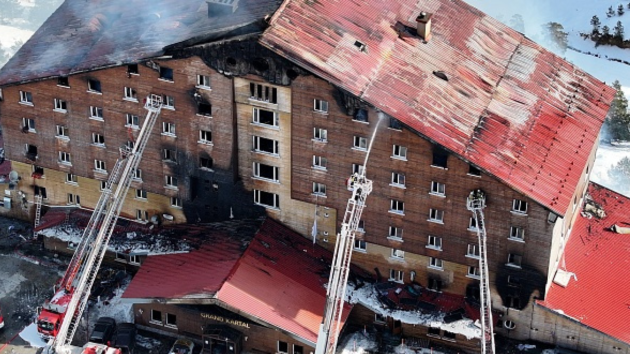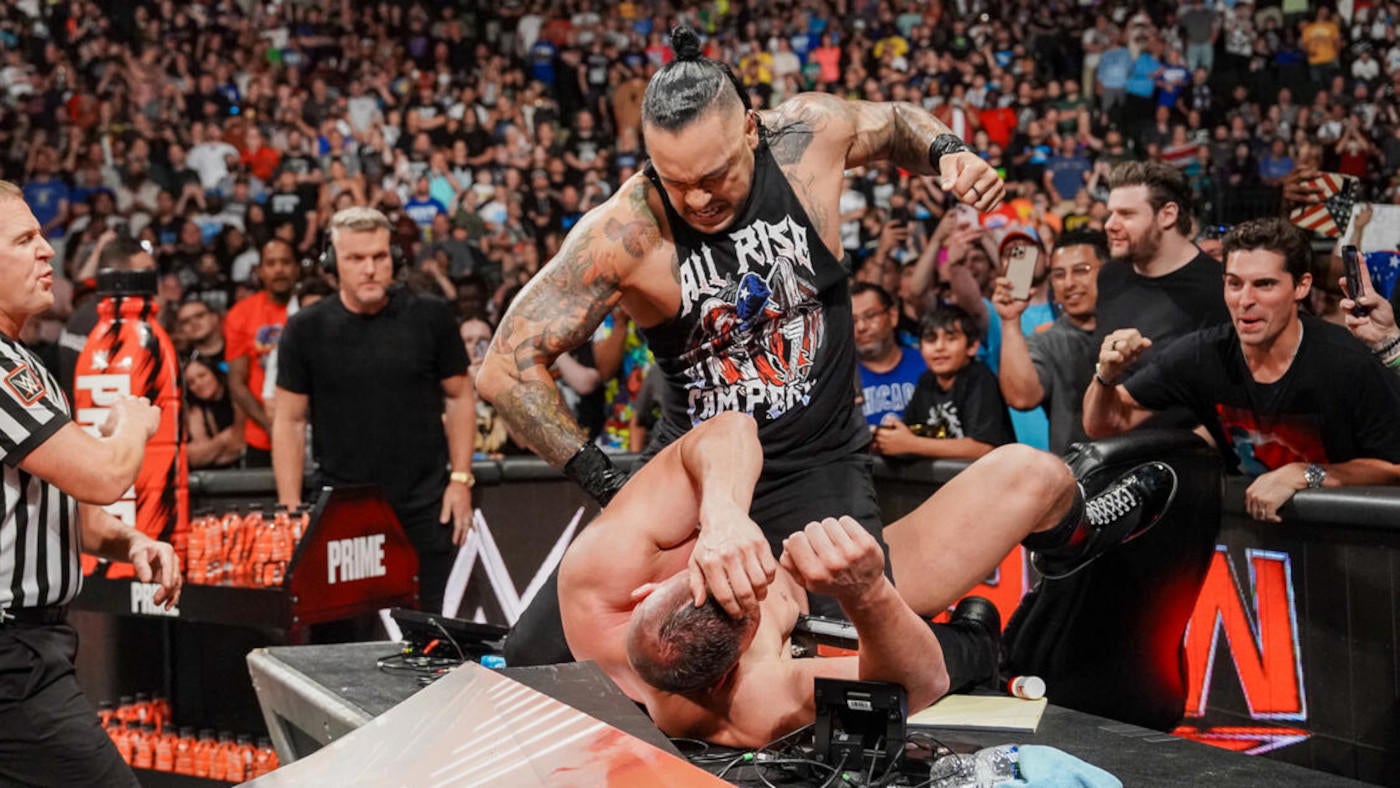Iran likely to retaliate for killing of Hamas leader, but extent is unclear, expert says
Written by ABC Audio ALL RIGHTS RESERVED on August 1, 2024

(NEW YORK) — As leaders in the Middle East and the United States await Iran’s response to the Israeli assassination Wednesday of Hamas political leader Ismail Haniyeh in Tehran, an expert on the situation said it could mean all-out war in the volatile region or lead to a quick resolution of the conflict in Gaza.
Israel is not only facing retaliation from Iran but also from Hezbollah in Lebanon, where Israeli forces on Tuesday killed top Hezbollah military commander Fuad Shukr in a precision missile strike in Beirut similar to one that took out Haniyeh, said retired Marine Col. Stephen Ganyard, a former Deputy Assistant U.S. Secretary of State.
Ganyard said the back-to-back assassinations of Haniyeh and Shukr could lead to an “all-out” war in the region or could be part of a larger plan by Israel to escalate tensions with Hezbollah and Iran to the point where they decide to settle the war between Israel and Hamas in Gaza.
“There’s an old Russian, even Soviet strategic ploy, which is called ‘escalate to de-escalate,'” said Ganyard, an ABC News contributor. “So what the Israelis appear to be doing here is ramping things up very quickly, perhaps to reset the discussions with Hamas and Gaza, to have Hezbollah calm down and to put Iran on greater notice that they are in fact going to be a target in the future if their attacks continue, and that their proxies are very vulnerable to Israeli attacks.”
Haniyeh was killed Wednesday when a long-range missile fired from an Israeli aircraft struck a guest quarters in Tehran where Haniyeh was staying as he attended the inauguration of Iran’s new president, Masoud Pezeshkian, Iranian officials said.
Iran’s Supreme Leader Ayatollah Ali Khamenei has called for “revenge.”
Ganyard said a number of elements had to come together to make this strike possible.
“What’s interesting about this is first they [Israel] had to have intelligence to know exactly which room that this leader was staying in and then they would have had to have the precision to hit just that room. And they do have these long-range weapons that have the ability to pick individual windows if needed,” Ganyard said.
He said Israel likely chose Tehran to kill Haniyeh because it has an “amazing amount of on-the-ground intelligence there.”
Ganyard said the assassination of Haniyeh was an embarrassment to Iran.
“Now will Iran go to war over a Hamas leader that was killed on its soil? There’s at least a hope that they won’t,” Ganyard said. “They will have to retaliate in some way because, obviously, they’re humiliated by Israel’s ability to take out a leader on their own soil.”
He said the real challenge for Iran is how far it is going to go because Haniyeh was not “one of its guys,” noting that Hamas is a Sunni organization and the leadership of Iran is Shia.
“So are you really going to start an all-out war with Israel based on somebody from one of your proxies, but not even a co-religious [person]?” Ganyard said.
Iran’s response could be similar to one it took against Israel in April when it launched 300 drones and missiles toward targets in Israel in retaliation for an Israeli airstrike in Damascus, Syria, that killed seven people, including a top Iranian commander. Israel said 99% of the drones and missiles fired by Iran were intercepted by the country’s “Iron Dome” defense system.
“So the response back in April was quite muted. It was like, ‘Okay, you got revenge. It didn’t do anything to us. Let’s call it off, at least simmer things down,'” Ganyard said. “So, that’ll be interesting to see what happens. How far does Iran retaliate? What does ‘revenge’ truly mean? How far are they willing to walk up to that line without going to outright war with the Israelis?”
Ganyard said he believes Israel’s bigger threat is Hezbollah in Lebanon.
“Hezbollah has somewhere between 150,000 and 200,000 ground-to-surface missiles that they can attack Israel with, some of which are precision weapons, which means that all of Israel’s infrastructure is at risk,” Ganyard said. “So the northern threat, Hezbollah, is really what’s going to concern Israel and what the response is from Hezbollah. And is Hezbollah willing to start that war?”
Israeli officials said it took out Shukr, the Hezbollah military commander in Beirut, because it believed he was responsible for a rocket attack on the Israeli-occupied Golan Heights on Saturday which killed 12 people, mostly children. Shukr was also wanted in connection to a 1983 bombing in Beirut of a U.S. Marine Corps barracks that killed 300 American and French soldiers.
Ganyard said the alleged Hezbollah strike in the Golan Heights pushed the conflict between Israel and Hezbollah “over the red line.” Hezbollah has denied any involvement in Saturday’s Golan Heights attack.
“How far it goes from here is really going to be a question for the Hezbollah and Iranian leadership,” Ganyard said.
Copyright © 2024, ABC Audio. All rights reserved.

 KVSP
KVSP 




